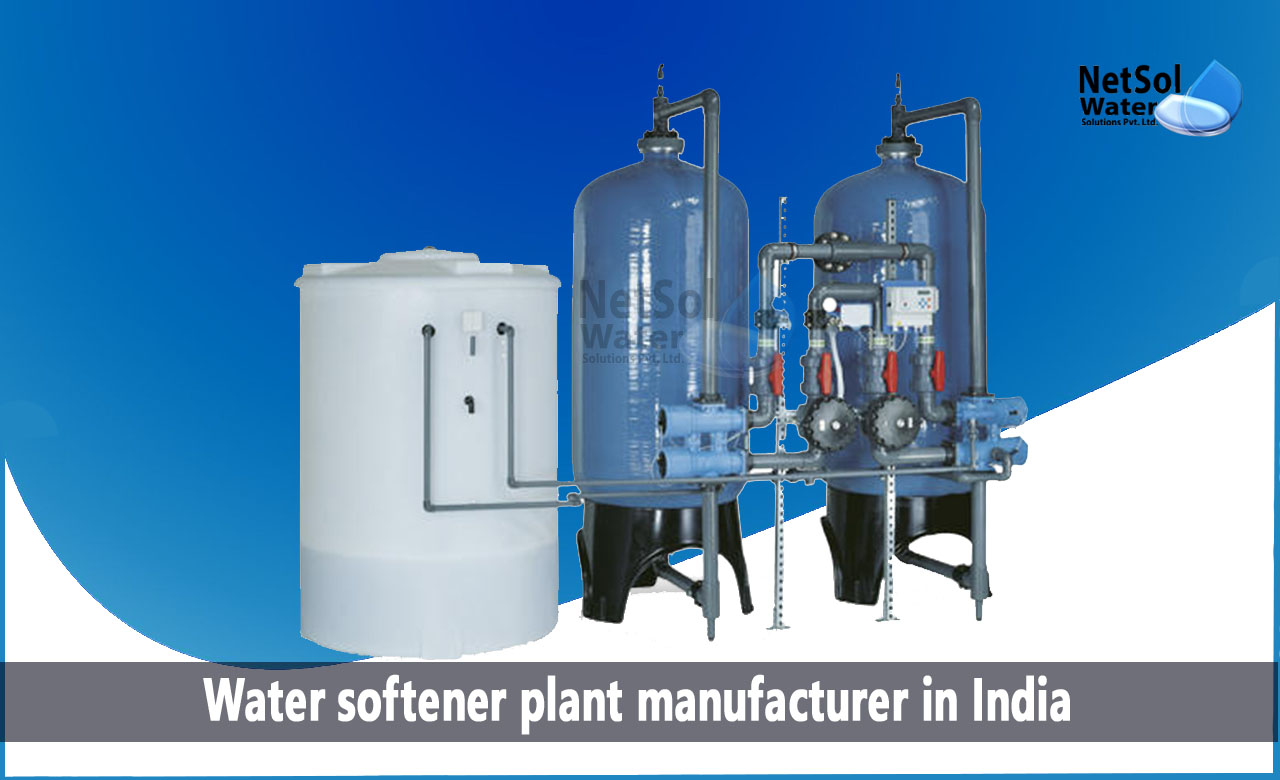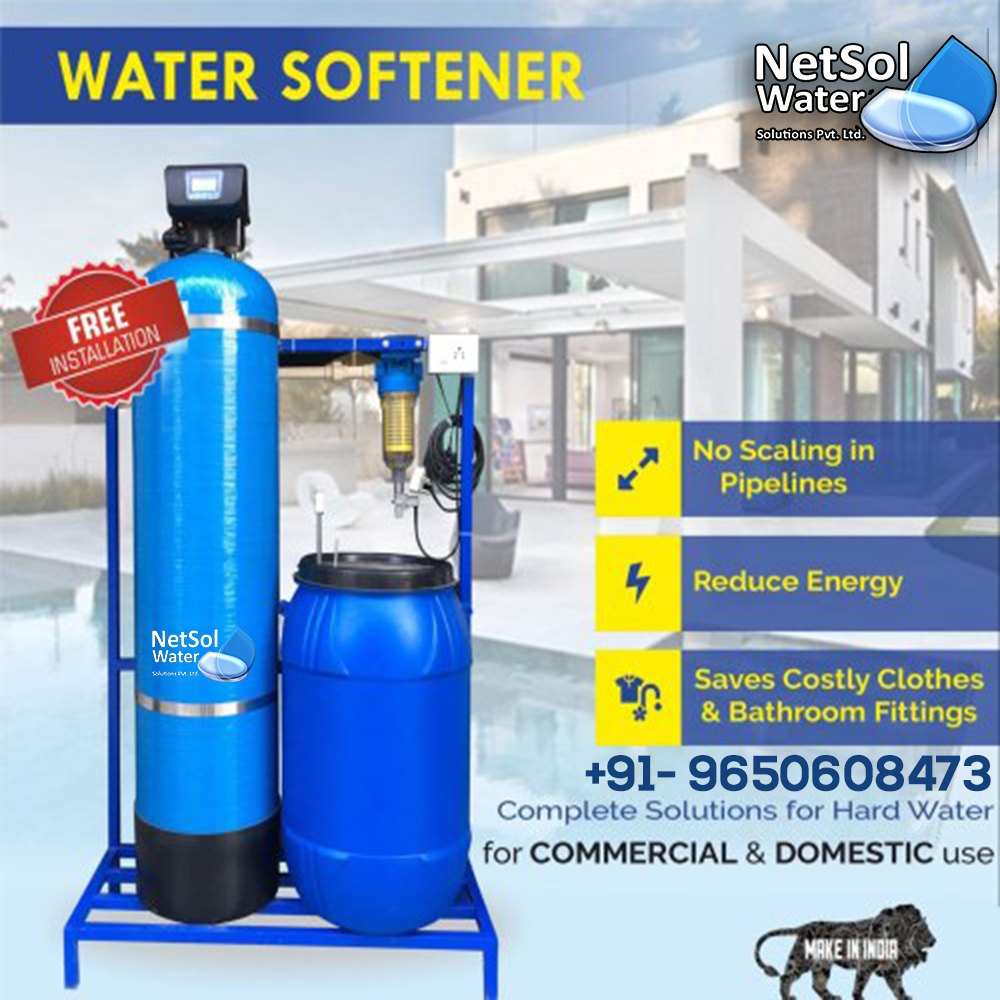Best Water softener plant manufacturer in India
Netsol Water, water softening system is based on the tried-and-true ion exchange method. The tiny, highly effective, and easy-to-use water softeners are made to create soft water quickly and cheaply.
The water softeners are readily installed, fully automatic or manually operated, and come in a variety of sizes and materials. The Water Softening Plants come in regular variants and versions that can be specially designed, to meet certain requirements.
Operating principle for Water Softening facilities
1: A high capacity sodium-based polystyrene bead cation exchange resin is added to the water softener process. The hardness-forming calcium and magnesium salts are changed by sodium salts, which have no hardness qualities, as the hard water flows through this resin column. The material continues to soften until all of the sodium salts have been removed, at which point it is regenerated with a common salt solution.
2: The innovative co-current/counter-current design used in the construction of the water softener units, guarantees consistently high-quality treated water. Pre-filters, a water softener vessel containing resin, a brine tank, and accessories make up a conventional water softening plant.
3: The materials for the water softener units include FRP, LDPE, MS, MS Rubber Lined, and stainless steel.
4: These water softeners have multiport valves and diaphragm valves, and are made to operate efficiently for a long time. These water softener systems are simple to install, don't need a particular foundation, and require little upkeep.
5: Fully automatic twin softeners with salt-saving technologies are available from us, to create soft water with little lingering hardness. These softeners save money by using roughly 25% less salt.
Plants for softening water with lime
In the lime softening process, hardness (calcium and magnesium) ions are eliminated by precipitation, by adding lime (calcium hydroxide).
Adding lime in the form of Ca (OH)2 softens the material by first reacting with CO2 to create calcium carbonate precipitate, then with multivalent cations to remove the carbonate hardness, then with anions to replace the non-carbonate hardness caused by multivalent cations with calcium's non-carbonate hardness. The technique of softening lime produces a lot of sludge, hence, it is no longer used.
Advantages of water softeners
- Simple to install and use
- Gentle, non-scale-forming water is produced
- Cation exchange resin with a high capacity
- Consistently high-quality treated water
- Low cost of operation
Applications for water softeners
- Boiler feed water softening facilities
- Systems that soften water for use in cooling systems
- Water Softening Facilities for Food and Drink
- Water softening systems for lodging and dining establishments
- Plants for air cooling use water softeners
- Washing Machine Water Softeners
Water Softener Plant manufacturer
When selecting a water treatment system for your home or industry, we are aware that there are many different stages of study and data collection. Whether you are simply browsing for information or have a specific specification that you require a quote for, neither situation matters!




